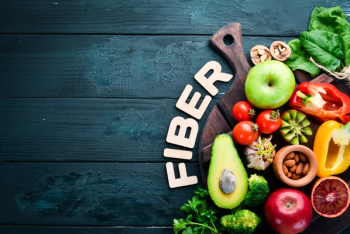
- Nutritional Outlook Vol. 17 No. 5
- Volume 17
- Issue 5
Baking With Sprouted Wheat Flour
The benefits go well beyond marketing.
Bakers like wheat for its useful gluten proteins, but just the right amount of steeping results in sprouted wheat. These slightly germinated wheat grains can be milled into sprouted wheat flour, creating flour that is as functional as it is newly appealing to consumers.
What changes occur when wheat is sprouted? Some suppliers say that, depending on the sprouting method, sprouted wheat may be darker in hue than traditional, non-sprouted wheat-a difference that may or may not be detected in the final milled flour. Several other changes occur, and they should help all manufacturers.
Nutrition
As far as published studies are concerned, sprouted wheat grains show nutritional superiority over non-sprouted wheat grains. Sprouted wheat is associated with higher levels of vitamins (especially B vitamins) and minerals. More recent studies suggest higher levels of phenolic compounds and antioxidant activity in both sprouted wheat grains and flour. As enzymes activate the growth of nutrients during the sprouting phase, non-fibrous carbs are also lost, making room for higher portions of fiber and protein.
The nutritional content of sprouted wheat will likely vary from one supplier to another, as results can depend on factors such as time and temperature sprouted, and even the quality of the starting seed material.
Taste
Thanks to the wonders of science, sprouting can even improve the taste of wheat flour.
Gang Guo, wheat research and quality manager at Horizon Milling (Wichita, KS), explains that the endosperm portion of the grain undergoes significant change during sprouting. Enzymes will convert some of the endosperm starch into simple sugars, and this results in an increase in sweetness. Bitter tannins from the grain are also removed because of steeping and the biological changes that occur during sprouting.
These pleasant taste changes were detected in a Horizon Milling consumer taste test on bread made with sprouted or non-sprouted wheat flour, and they have been reported elsewhere within industry.
Performance
Shoppers should enjoy the improved nutrition and taste of sprouted wheat flour, but bakers can benefit, too. Sprouted wheat flour offers several functional benefits over non-sprouted flour, and some of them relate to that increase in sugars.
When sugars are more readily available, yeast can start digesting them quicker, says Colleen Zammer, director of product marketing for Bay State Milling Company (Quincy, MA). Quicker digestion means quicker production of CO2. The results can include quicker proof times for bread and potentially greater loaf volume, as higher retention of CO2 bubbles creates a more pourous bread.
In bake lab experiments conducted by Horizon Milling, proof times decreased by 10% and bread loaf volumes increased 10%–20% when sprouted whole wheat flour was used to bake whole wheat bread. In those same experiments, sprouted whole wheat flour actually improved flour stability compared to non-sprouted flour. Flour stability-which can be measured using a sophisticated tool called a farinograph-is an indication of how much time flour can withstand mixers before the flour softens. In Horizon Milling’s tests, flour stability increased from 6.7 minutes to 11.7 minutes thanks to sprouting.
Consumer Outlook
The latest findings on sprouted wheat flour should be comforting to manufacturers who already use wheat, because times have been tough for this grain. With gluten sensitivity and potential overconsumption of wheat at the top of many shoppers’ minds, sprouting can give wheat products a whole new healthy image and an easier time in the factory.
But keep your eyes open, because wheat isn’t the only grain being sprouted.
Photo ©iStockphoto.com/g215
Articles in this issue
over 11 years ago
Beyond Testosterone: Men’s Health and Dietary Supplementsover 11 years ago
New Tactic for Weight Management: Blood Sugar Controlover 11 years ago
Ingredient Spotlight: Lion's Mane Mushroomover 11 years ago
Vitamin D and Brain Health: Smart Ways to Think about Vitamin Dover 11 years ago
Sprouting Proteinover 11 years ago
Fierce Debate over Zeaxanthin Isomersover 11 years ago
"Natural" and "All Natural" Claims Still Undefinedover 11 years ago
Understanding Global GMO Regulationsover 11 years ago
Kentucky Is Fighting For Its Hemp SeedsNewsletter
From ingredient science to consumer trends, get the intel you need to stay competitive in the nutrition space—subscribe now to Nutritional Outlook.





